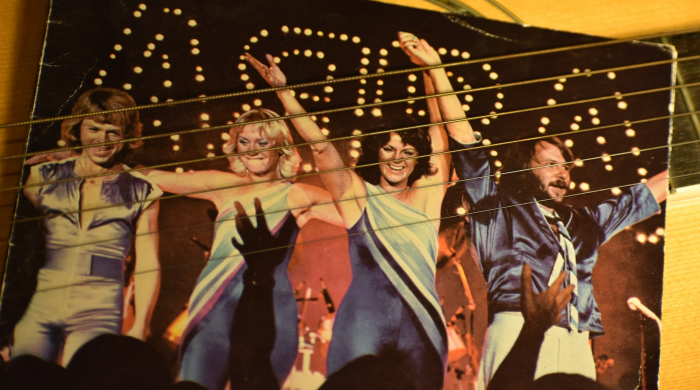The Most Iconic Eurovision Contestants Ever
By Toby King in Music / Festivals on 01 May 2023

It’s that time again, and once more the world finds itself coiled in eager anticipation for the running of what will be the 67th edition of the Eurovision Song Contest. The world’s largest music competition by some margin, it has produced a raft of stars from amongst the ranks of its entries and helped existing legends enshrine their legacy within popular culture. This time around, oddschecker, which compares odds and offers on the tournament, has Sweden’s Loreen marked as an early favorite. But all initiates know that surprise upsets and shock reversals are as much the name of the game as pomp, glitter and power ballads where Eurovision is concerned.
To further stoke the flames of Eurovision fever, we’re going to take a rundown here of some of the contest’s most memorable and breakout acts from throughout its near 70 year history. Here we will uncover just how diverse its winning acts and songs can truly be.
Conchita Wurst - "Rise Like a Phoenix"
Eurovision wears its LGBTQ+ advocacy on its sleeve, and nowhere was this more proudly celebrated than when Conchita Wurst, representing Austria, won the 2014 running of Eurovision with her magisterial ballad "Rise Like a Phoenix.”
Conchita Wurst is the drag stage persona of Austrian singer Thomas Neuwirth. In the years leading up to his historic Eurovision victory, Neuwirth had experienced some limited public exposure in his native country, most notably by appearing on the 2006 reality TV show “Starmania”, where he finished 2nd.
In 2011, following the break-up of the band Jetzt Anders!, Neuwirth decided to focus on pursuing a solo career and created Conchita Wurst as his drag persona to this aim. Wurst first attempted to qualify for Eurovision in 2012, and though this bid was unsuccessful, she made an impression with her powerful voice and captivating stage presence.
Following Conchita’s barn-storming 290 point win of the 2014 competition, Wurst released a self-titled album in 2015 that reached No. 1 in Austria. Wurst has sought to use her platform to advocate and promote LGBTQ+ causes, appearing as an ambassador before the European Parliament and United Nations in this capacity.
Most recently, Neuwirth has begun to focus on more electronic music under the WURST moniker; this is evidenced in both 2019’s album "Truth Over Magnitude" and its follow up, 2020’s "T.O.M."
Domenico Modugno - "Nel blu dipinto di blu" (Volare)
Italian-born Domenico Modugno established himself as one of the most promising up-and-coming singer-songwriters in the country in the 1950s, and achieved mainstream success there after first performing "Nel blu dipinto di blu" at the 1958 Sanremo Music Festival.
This promptly led to him – and this song – receiving selection for Eurovision that year as Italy’s representative, in which he placed third. In spite of failing to take the top prize, the song became an international breakout hit that resulted in some 22 million copies sold, and Modugno to become a household name.
Julio Iglesias - "Gwendolyne"
When someone comes to the decision to retrain or shift focus into a new career, it often comes with an aspiration to reach new heights and find greater success in their new field. It was with these ambitions that Julio Iglesias, the Madrid-born former soccer player, sought to break into the world of songwriting and performing.

How did it go? Well, to date he has sold over 300 million albums, making him one of the best selling Latin artists of all time and one of the few exceptional examples of a successful cross-over into the Anglophone music industry.
Iglesias recorded and released his very first album in 1969, titled "Yo Canto". It was an enormous success in his native land of Spain, so much so that he was promptly selected to represent the nation in the 1970 running of Eurovision.
Sadly his entry, "Gwendolyne", did not secure victory, instead landing him a fourth place finish. But Iglesias’ career from that point forward is a telling reminder that even runners up can experience a significant change in their fortunes through entertaining hundreds of millions of people around the world.
Over the following years, Iglesias turned out a number of massive hits in multiple languages, even collaborating with some of the biggest musicians in the English-speaking world. The year 1984 saw him team up with Diana Ross for “All of You”, and in 1988, he sang the duet "To All the Girls I've Loved Before" with country music legend Willie Nelson.
Celine Dion - "Ne partez pas sans moi"
To most people today, Celine Dion is best known for performing “My Heart Will Go On”, the theme of James Cameron’s 1997 record-breaking blockbuster Titanic. The song, which went to No. 1 virtually everywhere it was released, stayed in the top spot in the Billboard 100 for ten weeks and sold approximately 18 million copies worldwide.
Little does the average movie fan know, though, that Celine Dion was virtually unheard of outside of her native country of Canada until the late 1980s. Her big break came from the unlikeliest of places – Switzerland, who decided to search further afield than amongst their compatriots for a viable representative in the 1988 Eurovision competition. They chose her to sing what would become the winning song that year, "Ne partez pas sans moi".
While it’s commonplace for native artists to be selected to represent a nation at Eurovision, there are no hard and fast rules preventing non-nationals from stepping into the role. This was how Switzerland enlisted the impressive vocal talents of Dion to give them their second ever, and easily greatest, Eurovision victory to date.
ABBA - "Waterloo"
It’s hard to believe nowadays that ABBA were ever anything less than a pop supergroup, but when Agnetha, Björn, Benny and Anni-Frid performed “Waterloo” in the 1974 edition of Eurovision, they were little more than minor domestic stars.
It was this victory that put ABBA on the short road to becoming an international household name. ABBA have now sold over 380 million albums, and hits such as "Dancing Queen” and "Take a Chance on Me" have cemented their legacy as some of the most influential and beloved recording artists of the 20th century.
Contactmusic
Suggested

Leisure Festival - Dreamland in Margate
On the same day that Glastonbury welcomed back Margate's adopted sons, The Libertines, Margate itself put on it's very own Leisure Festival as it...

Pretty Fierce talk to us about collaborating with Doja Cat, emetophobia, arena tours and staying "true to yourself" [EXCLUSIVE]
Sheffield's very own all girl group Pretty Fierce are still on a high after the recent release of their debut single - 'Ready For Me'.

Will Varley & Jack Valero - The Astor Theatre Deal Live Review
Three nights before the end of his current tour Will Varley returned to his home town of Deal to delight a sold out crowd in The Astor Theatre.

WYSE talks to us about her "form of synaesthesia", collaborating with Radiohead's Thom York and the prospect of touring with a band [EXCLUSIVE]
With only a few days to go before Portsmouth based songstress and producer WYSE releases her new single, 'Belladonna', we caught up with her to find...
Advertisement

Bay Bryan talks to us about being a "wee queer ginger", singing with Laura Marling and being inspired by Matilda [EXCLUSIVE]
Colorado raised, Glasgow educated and Manchester based Bay Bryan is nothing if not a multi-talented, multi-faceted artist performing as both...

Keelan X talks to us about staying true to "your creative vision", collaborating with Giorgio Moroder and being "a yoga nut" [EXCLUSIVE]
Former Marigolds band member Keelan Cunningham has rediscovered his love of music with his new solo project Keelan X.
![Luke De-Sciscio talks to us about having the courage to be yourself, forgiving that which is outside of one's control and following whims [EXCLUSIVE] Luke De-Sciscio talks to us about having the courage to be yourself, forgiving that which is outside of one's control and following whims [EXCLUSIVE]](https://images.contactmusic.com/images/home/homepage/luke-de-sciscio-abof-a.jpg)
Luke De-Sciscio talks to us about having the courage to be yourself, forgiving that which is outside of one's control and following whims [EXCLUSIVE]
Wiltshire singer-songwriter Luke De Sciscio, formally known as Folk Boy, is set to release is latest album - 'The Banquet' via AntiFragile Music on...

Annie Elise talks to us about the challenges a female producer has to face and "going through a year of grief and sickness" [EXCLUSIVE]
Electronic music pioneer and producer Annie Elise says that the release of her first EP - 'Breathe In, Breathe Out' feels "both vulnerable and...
Advertisement
